Developing households’ livelihoods in Maro

LWF Chad trains and supports several People with Special Needs (PSNs) groups in host and refugee communities in Maro. The Maro bureau encourages entrepreneurship and the development of economic activities in order to support households’ budget, to reinforce food safety and increase the number of children going to school.
In the Maro area 26 PSNs have been formed we were able to meet with three of them. The first makes bread, the second group cultivates crops and the last has an array of varied activities.
- Mounie Berte, thirty years old, is part of a women’s group, trained and organized by the LWF Chad in Maro. This group specializes in the fabrication of bred that members then sell on the Maro market. After having received trainings, its members decided to put their savings together and to place them in the PARSEC, a credit and saving organization in Maro. The group is still waiting for financial support to increase its capital. Thanks to their activities, the training and advices received the group was already able to use their knowledge. They also were able to help their president when she had a broken bone and decided to finance her 40000 FCFA (60 €) medical treatment. The president tells us she would have never been able to afford healing and medical care if hadn’t been for the generosity of the group.
- The second group, Keresain, is composed of 13 women of the Paris Sara village. Members of the group cultivate crops and sell various products in the market. This year, the group harvested half a hectare of peanut, decided to stock it and to sell it when seeds would be rarer in the off season. The group has an account at the PARSEC that receives their monthly participation fee and their revenues from the agricultural products’ sale. They explain that the generated income also allows them to support their household in a region where men can’t. The president points out that all the members’ children are going to school thanks to their work.
- Ms. Dnénénodji Rosalie is a 38 years old CAR refugee. She lost her husband and lives with her 7 children in the Belom camp in Maro. She also is the president of a mixt group of 10 persons supported by the LWF Chad. She explains that their group first received a 300’000 FCFA (450 €) credit to start their activities. After the successful reimbursement of the credit, Ms Dénénodji was the beneficiary of an in kind credit of two cattle heads with a plough for her agricultural activities. This last credit she is reimbursing on its own because other group members have used their part of the revenues to develop other activities. Rosalie explains that she rents her cattle and plough to other farmers at prices fixed according to the size of their land. With her revenues, she bought a small press to produce peanut paste that she also rents to other women in the camp in exchange for a small stipend. She explains that, thanks to her income, she is able to pay for her children’s school and some of her household’s needs.
The of LWF Chad activities towards the development of Income Generating Activities is necessary to help beneficiaries being less dependent on humanitarian aid. That is this strategy that the LWF Chad office in Maro is implementing in these communities.

